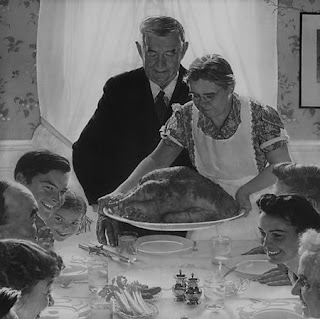On August 1, 1942, the American Federation of Musicians, at the instigation of union president James C. Petrillo, began a strike against the major American recording companies because of disagreements over royalty payments. This strike seriously hurt Big Band artists and helped bring on the demise of the era. Beginning at midnight, July 31 1942, no union musician could make commercial recordings for any commercial record company. That meant that a union musician was allowed to participate on radio programs and other kinds of musical entertainment, but not in a recording session. The 1942–44 musicians' strike remains the longest strike in entertainment history.
"Beginning at midnight, July 31 1942, no union musician could make commercial recordings for any commercial record company."
The strike did not affect musicians performing on live radio shows, in concerts, or, after October 27, 1943, on special recordings made by the record companies for V-Discs for distribution to the armed forces fighting World War II, because V-Discs were not available to the general public. However, the union did frequently threaten to withdraw musicians from the radio networks to punish individual network affiliates who were deemed "unfair" for violating the union's policy on recording network shows for repeat broadcasts.
"The strike had a big impact, since at the time, union bands dominated popular music. After the strike, and partly as a result of it, vocalists dominated popular music."
Petrillo had long thought that recording companies should pay royalties. As head of the Chicago local chapter of the union in 1937 he had organized a strike there. Petrillo was elected president of the American Federation of Musicians in 1940. When he announced that the recording ban would start at midnight, July 31, 1942, most people thought it would not happen. America had just entered World War II on December 8, 1941, and most newspapers opposed the ban. By July, it was clear that the ban would take place and record companies began to stockpile new recordings of their most popular artists.
Several months passed before any effects of the strike were noticed. At first, the record companies hoped to call the union's bluff by releasing new recordings from their unissued stockpiles, but the strike lasted much longer than anticipated and eventually the supply of unissued recordings was exhausted. The companies also reissued long deleted recordings from their back catalogs, including some from as far back as the dawn of the electrical recording era in 1925. One reissue that was especially successful was Columbia’s release of Harry James’ "All or Nothing at All", recorded in August 1939 and released when James' new vocalist, Frank Sinatra, was still largely unknown. The original release carried the usual credit, "Vocal Chorus by Frank Sinatra" in small type. It sold around five thousand copies. When Columbia reissued the record in 1943 with the now famous Sinatra given top billing, and "with Harry James and his Orchestra" in small type below, the record was on the best–selling list for 18 weeks and reached number 2 on June 2, 1943. In 1942, the song "As Time Goes By" became immensely popular after it was featured in the Warner Bros. film Casablanca. Rudy Vallée recorded the song for RCA Victor in 1931, and the reissue of his 12 year old record became a number-one hit.
As the strike extended into 1943, record companies bypassed the striking musicians by recording their popular vocalists singing with vocal groups filling the backup role normally filled by orchestras.
One unexpected result of the strike was the decline of the importance in popular music of the big bands of the 1930s and early 1940s. The strike was not the only cause of this decline, but it emphasized the shift from big bands with an accompanying vocalist to an emphasis on the vocalist, with the exclusion of the band. In the 1930s and pre–strike 1940s, big bands dominated popular music; after the strike, vocalists dominated popular music.
During the strike, vocalists could and did record without instrumentalists; instrumentalists could not record for the public at all. As historian Peter Soderbergh put it, "Until the war most singers were props. After the war they became the stars and the role of the bands was gradually subordinated."
Before the strike began there were signs that the increasing popularity of singers was beginning to reshape the big bands. When Frank Sinatra joined Tommy Dorsey's band in 1940, most selections started with a Tommy Dorsey solo. By the time Sinatra left in 1942, his songs with the band began with his singing, followed by any solos by Dorsey or others.
The other major cause of the decline of the big bands was World War II itself—and the resulting loss of band members to the military, curtailment of traveling by touring bands because of gasoline rationing, and a shortage of the shellac used to make records.
If you'd like to learn more about this strike visit the
full article here.
Swing City Radio: Playing Your Big Band and Swing Music Favorites from the 1930's, 40's and Today! - Big Band Radio Station Broadcasting Online from King of Prussia, PA.















